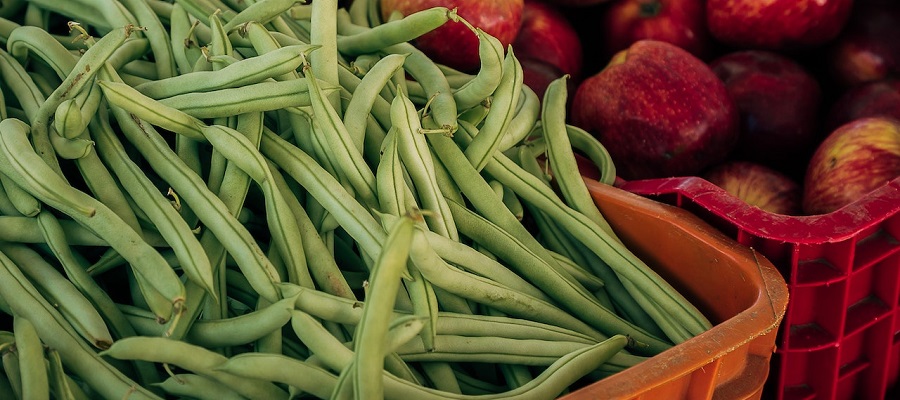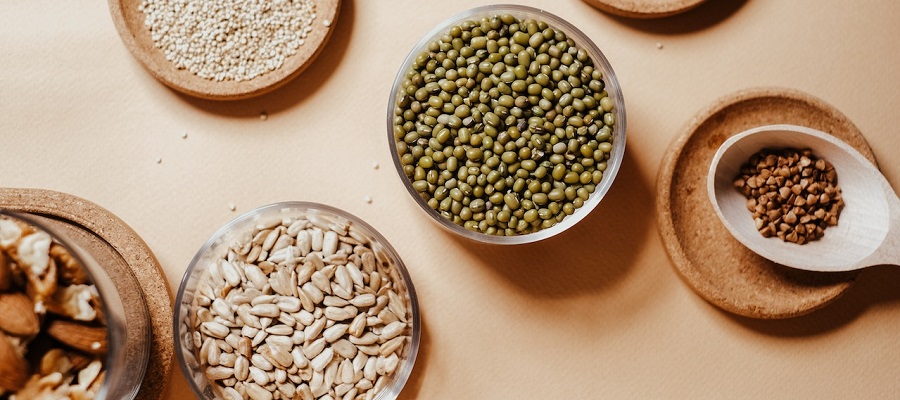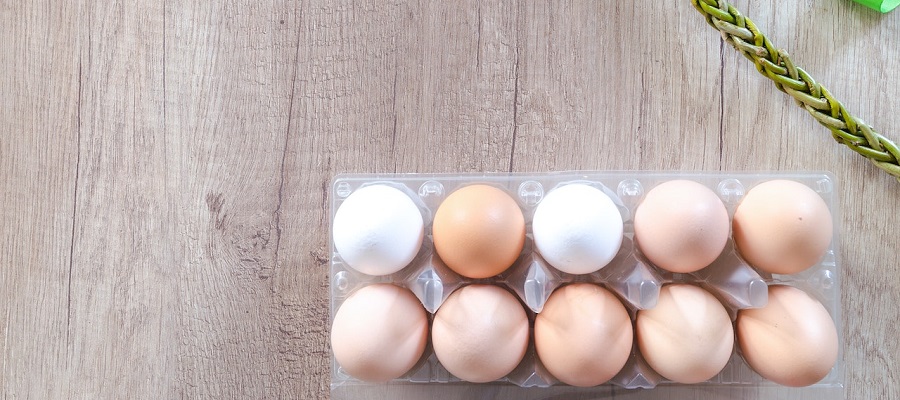Green beans, also known as string beans or snap beans, are a type of legume that are typically harvested when they are still immature and tender. They are a popular vegetable that are often used in salads, stir-fries, and casseroles.
Green beans are a good source of vitamins and minerals, including vitamin C, vitamin K, vitamin A, and folate. They are also a good source of dietary fiber and contain small amounts of protein.
Green beans are relatively low in calories, making them a good choice for those trying to lose weight or maintain a healthy weight. They are also low in fat and cholesterol-free.
To retain the most nutrients when cooking green beans, it is best to steam or sauté them. Boiling or microwaving can cause them to lose some of their nutritional value. Green beans can also be eaten raw, in salads, or as a snack.
Green beans are also suitable for people following a low-carb diet. They are a good source of fiber and other nutrients, while being low in carbohydrates.
Green beans are safe to eat during pregnancy and can be a good source of folate, which is important for the developing fetus. However, it's always a good idea to talk to a doctor or a healthcare professional for personalized advice.
Green beans are a healthy and versatile vegetable that can be enjoyed in many different ways. They can be eaten alone as a side dish or added to other dishes to boost their nutritional value.
What are the nutritional benefits of green beans?
Green beans are a good source of several essential vitamins and minerals, including:
- Vitamin C: important for maintaining healthy skin and immune system.
- Vitamin K: important for blood clotting and bone health.
- Vitamin A: important for vision, immune function, and maintaining healthy skin.
- Folate: important for cell growth and development, and it's especially important for pregnant women.
- Fiber: important for maintaining regular bowel movements and helping to lower cholesterol levels.
- Iron: important for carrying oxygen in the blood and maintaining healthy energy levels.
- Calcium: important for healthy bones and teeth.
- Potassium: important for maintaining healthy blood pressure and nerve function.
Additionally, Green beans are low in calories and fat and are cholesterol-free, which makes them a good choice for those trying to lose weight or maintain a healthy weight.
How many calories are in a serving of green beans?
A serving of green beans is typically considered to be about 1 cup, or around 120 grams.
Based on this serving size, green beans contain approximately:
- 44 calories
- 1 gram of protein
- 1 gram of fat
- 10 grams of carbohydrates
- 4 grams of dietary fiber
- 6 grams of sugar
It's important to note that the calorie content can change depending on how the green beans are prepared, for example, if they are sautéed with oil or butter it will add more calories.
How should green beans be prepared to retain the most nutrients?
To retain the most nutrients when preparing green beans, it is best to steam or sauté them. These cooking methods help to preserve the vitamins, minerals, and antioxidants in the green beans.
Here are some tips for preparing green beans in a way that maximizes their nutritional value:
-
Steaming: Fill a pot with 1-2 inches of water and insert a steamer basket. Bring the water to a boil and add the green beans to the steamer basket. Cover the pot and steam for 4-5 minutes, or until the green beans are tender but still slightly crisp.
-
Sautéing: Heat a small amount of oil (such as olive oil) in a pan over medium heat. Add the green beans and sauté for 4-5 minutes, or until they are tender but still slightly crisp. You can add some garlic or other herbs and spices to flavor.
-
Microwaving: Place the green beans in a microwave-safe dish and add a small amount of water. Cover the dish with a microwave-safe lid or plastic wrap and microwave on high for 2-3 minutes, or until the green beans are tender but still slightly crisp.
Avoid boiling green beans as they can lose some of their nutritional value and become mushy.
Additionally, eating green beans raw is also a great way to retain most of the nutrients, they can be eaten as a snack or added to salads or sandwiches.
Can green beans be eaten raw or do they need to be cooked?
Green beans can be eaten both raw and cooked.
Eating green beans raw is a great way to retain most of the nutrients, as the heat from cooking can cause some loss of vitamins and minerals. They can be eaten as a snack or added to salads or sandwiches for a crisp, refreshing crunch.
Cooking green beans can also be a healthy option as it can make them more digestible and enhance their flavor. It also increases the bioavailability of some of the nutrients like beta carotene, lutein and zeaxanthin. Steaming, sautéing or microwaving are the best methods of cooking to retain most of the nutrients.
It's important to note that some people may have a hard time digesting raw green beans, so it's always best to consult with a doctor or healthcare professional before making any significant dietary changes.
Are green beans suitable for people following a low-carb diet?
Yes, green beans are generally considered suitable for people following a low-carb diet.
Green beans are a good source of fiber and other nutrients, while being relatively low in carbohydrates. A cup (120g) of raw green beans contains around 10 grams of carbohydrates, of which 4 grams are dietary fiber. This makes them a good option for people who are trying to limit their carbohydrate intake.
It's important to note that some people following a low-carb diet might be more restrictive on the amount of carbs they consume and might need to adjust their serving size accordingly. Additionally, if you are following a low-carb diet, it's always best to consult with a healthcare professional to ensure that your diet is meeting your nutritional needs.
Are green beans safe to eat during pregnancy?
Green beans are generally considered safe to eat during pregnancy. They are a good source of folate, which is important for the developing fetus. Adequate intake of folate before and during pregnancy can help prevent certain birth defects in the baby's brain and spine.
However, it's always a good idea to talk to a healthcare professional for personalized advice. They can advise you on the best ways to meet your nutritional needs during pregnancy, taking into account any underlying health conditions or other factors that might affect your diet.
It's also important to note that pregnant women should avoid eating raw or undercooked vegetables, including raw green beans, due to the risk of foodborne illness. It's best to cook green beans properly by steaming, sautéing or microwaving them.
Overall, green beans can be a healthy and nutritious addition to a pregnancy diet, and they are a good source of several important nutrients that are needed for a healthy pregnancy.
How do green beans compare to other vegetables in terms of nutrition?
Green beans are a nutritious vegetable that provides a good source of several essential vitamins and minerals, including vitamin C, vitamin K, vitamin A, folate, dietary fiber, iron and potassium.
Compared to other vegetables, green beans are relatively low in calories and fat, making them a good choice for those trying to lose weight or maintain a healthy weight. They are also low in carbohydrates, making them suitable for people following a low-carb diet.
In terms of vitamin and mineral content, green beans are similar to other vegetables in the same family such as broccoli, cauliflower and cabbage, which also provide a good source of Vitamin C, Vitamin K, Vitamin A and dietary fiber.
When comparing to other non-starchy vegetables such as leafy greens, green beans are not as rich in Vitamin K, but they contain a good amount of Vitamin C and Vitamin A.
It's always a good idea to eat a variety of fruits and vegetables to ensure that you are getting a wide range of essential vitamins, minerals, and other nutrients. This can help to ensure that you are meeting your nutritional needs and maintaining a healthy diet.
Are there any potential negative effects of consuming too many green beans?
Generally, green beans are considered safe to eat and have many health benefits. However, consuming too much of anything can have negative effects on the body.
Eating large amounts of green beans may cause gas, bloating, and diarrhea due to the high fiber content. Also, they might interfere with the absorption of some minerals such as iron and zinc, if consumed in large quantity.
Additionally, if you are on blood-thinning medication or have a bleeding disorder, green beans should be consumed in moderation as they contain Vitamin K, which plays a role in blood clotting.
It's also important to note that if you are following a low-carb diet, you should pay attention to the amount of green beans you consume, as they contain carbohydrates, although relatively low in comparison to other vegetables.
Overall, green beans are a healthy and nutritious vegetable that can be enjoyed as part of a balanced diet. As with anything, it's always best to consume them in moderation and to consult with a healthcare professional if you have any concerns about your diet.


